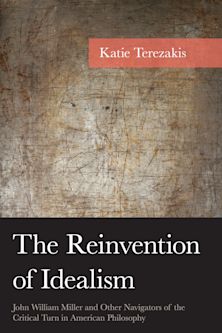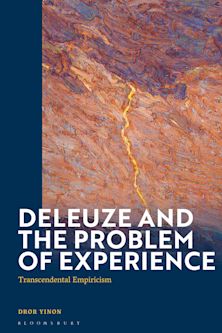- Home
- ACADEMIC
- Philosophy
- Twentieth-Century Philosophy
- The Varieties of Pragmatism
The Varieties of Pragmatism
You must sign in to add this item to your wishlist. Please sign in or create an account
Description
In the last two decades, however, a radical anti-epistemology movement led by the influential American philosopher Richard Rorty has put partisans of all three theses on the defensive. Moreover, Rorty has repeatedly claimed that his opposition to the shibboleths of traditional epistemology draws inspiration from the grand tradition of Pragmatism (especially from William James and John Dewey.
In this important new book, Douglas McDermid argues persuasively for two key claims: first, that the so-called "Neo-Pragmatist" critique of traditional epistemology is thoroughly unconvincing; second, that Rorty is guilty of taking the name of Pragmatism in vain, since there are crucial and far-reaching differences between Neo-Pragmatism and the Classical Pragmatism of James and Dewey. The Varieties of Pragmatism will take its place in the forefront of the literature on this most vital part of the American philosophical legacy.
Table of Contents
2. Pragmatism and the Correspondence Theory of Truth
3. The Comparison Objection: Pragmatism and Foundationalism
4. The Constructivist Objection: Pragmatism and Realism
5. Correspondence: Denied or Merely Demystified?
6. Towards An Anatomy of Pragmatism
7. Rorty, Neo-Pragmatism, and The End of Epistemology
8. Why Can't Epistemology Be 'Foundational'?
9. Does Epistemology Rest on a Mistake? Rorty on Scepticism
10. Epilogue: Putting Pragmatism In Perspective
Appendix: Rorty, Truth and Non-Cognitivism
Bibliography
Index
Product details
| Published | 01 Sep 2008 |
|---|---|
| Format | Ebook (PDF) |
| Edition | 1st |
| Extent | 208 |
| ISBN | 9781441118912 |
| Imprint | Continuum |
| Series | Continuum Studies in American Philosophy |
| Publisher | Bloomsbury Publishing |
About the contributors
Reviews
-
"McDermid offers a defense of pragmatist arguments against a realist epistemology and the correspondence theory of truth-that a statement is true if and only if it mirrors reality-by briefly examining the arguments of classical writers such as William James, F.C.S. Schiller, and John Dewey, and of neopragmatists Donald Davidson, Hillary Putnam, and Richard Rorty. The volume consists of eight chapters in two sections: "Pragmatism and the Correspondence Theory of Truth" outlines some important pragmatist arguments for and against realism and the correspondence theory; "Neo Pragmatism and Epistemology" defends epistemological realism by challenging the pragmatist arguments for a coherence theory, and Rorty's pragmatist credentials. The epilogue presents a Platonic myth in which the author defends philosophy, objectivity, and reason. Three short appendixes follow on Rorty's conception of truth, Putnam's and Kant's views on the coherence theory, and James's and Dewey's criticisms of the correspondence theory. A general bibliography lists classical and contemporary works to 2003...the book assumes a mastery of the field."
Choice Reviews
-
"... One could hardly find a better introduction to its subject matter or a more judicious treatment of its themes. It is also a pleasure to read." Ernest Sosa, Brown University
Blurb from reviewer



































